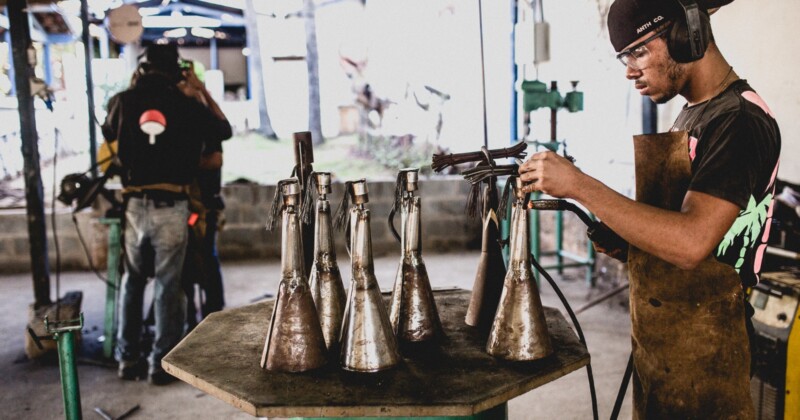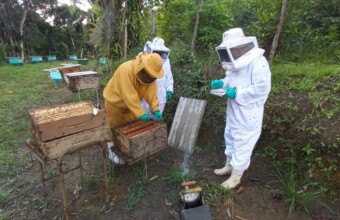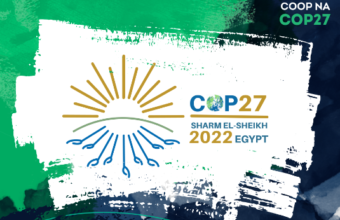Generate human and professional development opportunities for young people aged 16 and over, committed to the values of local culture and the environment. This is the motto that led to the founding of the Minas Gerais social cooperative Dedo de Gente, in 1996. The project was born as a consequence of an educational process initiated 40 years ago by the Popular Center for Culture and Development (CPCD, in portuguese acronym), led by educator Tião Rocha.
“Today, Dedo de Gente is a cooperative that generates work and income opportunities for young people, within an educational, liberating and creative process. The work is carried out in order to prepare them for the market or to run their own ventures in a supportive manner”, explains Claudia Santos, the cooperative’s pedagogical coordinator.
Currently, the cooperative is present in the cities of Curvelo and Araçui, both in the State of Minas Gerais, where its stores are located. Dedo de Gente encourages development through manufacturing and works on the following fronts:
- Fabriqueta de Doce: produces sweets, jellies and liqueurs.
- Fábrica da Serralheria: manufactures iron sculpture, scrap sculpture, animal replicas, decorative and utilitarian pieces.
- Fabriqueta da Cartonagem: creates gift boxes, cards, painted tiles, lamps and decorations.
- Fabriqueta da Jardinagem: grows decorative seedlings and maintains terrariums.
“Based on the pillars of environmental commitment, all of the cooperative’s products are designed with raw materials from our region. Reusing and recycling are constant practices”, explains Claudia.
Another pillar is the economic satisfaction of youth engaged in the cooperative’s projects. In this context, all the money raised from the sale of products made by young people returns to them.
“The focus of the cooperative is the protagonism of young people, human values and environmental commitment. The objective is to establish a professional, efficient, happy and transformative self-management system, permanently educational”, adds the pedagogical coordinator.
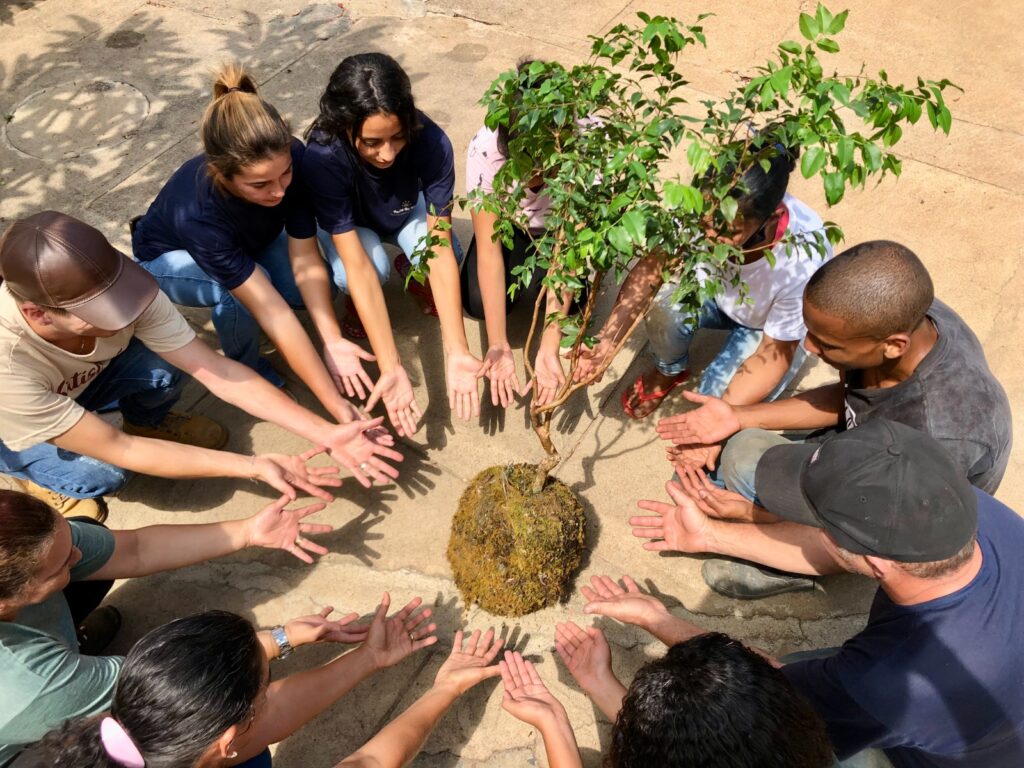
Culture and sustainability
The Dedo de Gente cooperative brings together a portfolio of more than 10,000 products created and made by young people. The creation of products takes into account the appreciation of local culture and the appreciation of community roots. Claudia explains how this process works:
“Recipes for sweets, jellies and liqueurs made from cerrado fruits are invented, tested and, once approved, are made available for sale. We collected soil from various parts of our city, taking advantage of the range of color variations and transforming it into earth paint. With them we make cards, boxes, paint decorations and use the color of our countryside in our products.”
Guimarães Rosa, one of the most important writers in Brazilian literature, used the backlands of Minas Gerais as the setting for his works, such as the classic “Grande Sertão: Veredas”. As a great disseminator of local culture, his characters are honored in the crafts produced by Dedo de Gente.
“When we refer to cultural roots, we are referring to our origin, that is, the way in which the culture of our people was built. That’s why our inspirations come a lot from the works of Guimarães Rosa, as he portrays the simple life of a country man. It’s not that we want to live in the past, but to keep alive the history of the construction or creation of our people’s culture”, adds Claudia.
The cooperative’s production volume varies according to participation in fairs and exhibitions. On average, 500 pieces are manufactured per month, built with a focus on sustainability and putting the circular economy into practice.
“Our sustainable production begins with the choice of our raw materials. We use scrap, waste, earth, seasonal fruits. From the choice of raw materials, the way of making it, avoiding waste, all of this has become a culture at Dedo de Gente. We want to continue meeting current demands without leaving aside concern for the planet. When we reuse scrap we are extending the useful life of raw material products, reinserting them into new production chains”, says Claudia.
The cooperative is also leading a movement to discourage the use of cages to imprison birds. To achieve this, Dedo de Gente recycles waste from its factories to produce birdhouses, as well as nests and feeders. “Our dream is for everyone to learn how to care for birds without trapping them.”
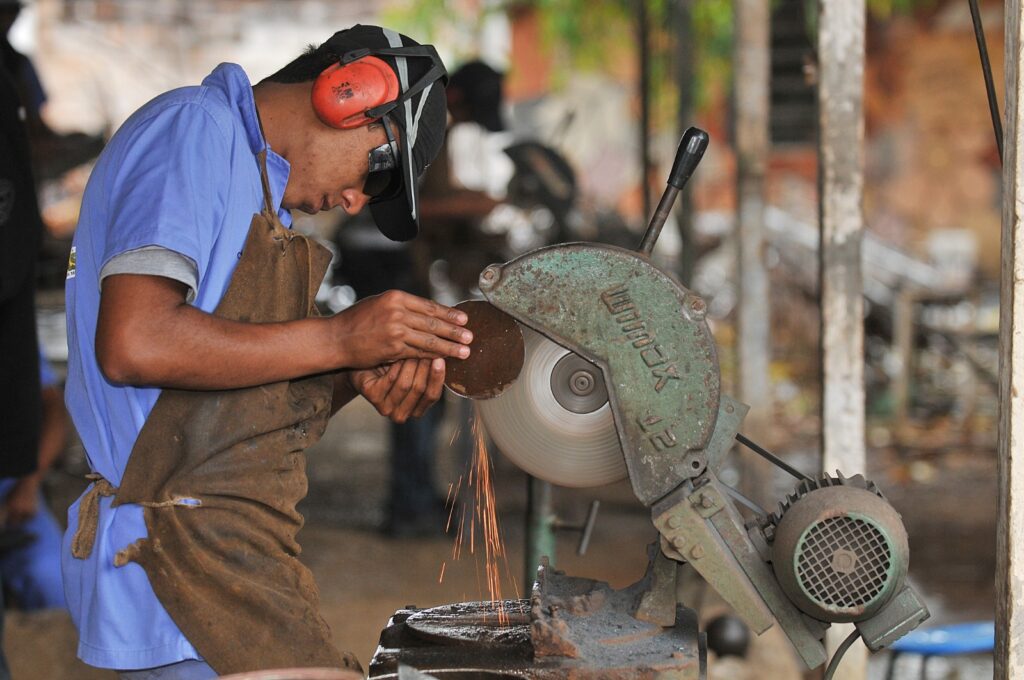
Community and youth entrepreneurship
Throughout its 27-year history, Dedo de Gente has developed work aimed at human and professional development. Combining education and manual work, the cooperative transmits skills and principles to guide life, explains the pedagogical coordinator:
“As young people make a commitment to make and deliver a product by a certain date and manage to do so, they are acquiring the value of responsibility. When he arrives at the agreed time, plans and executes, he is acquiring readiness. When he has access to everything, material, machinery, finished products and respects it, he is acquiring the value of honesty. When he can hear others talking in the circle, waiting for his turn to speak, he is acquiring the value of respect.”
In this way, Dedo de Gente works to stimulate curiosity, attention and the desire to learn about new things based on three pillars:
- Learning to do: this is when young people discover their personal skills. After that, their development is stimulated through practice. The skills learned and improved at this stage are not limited to professional capabilities, but also important lifelong qualifications, such as teamwork.
- Learning to coexist: point where young people learn more about mutual coexistence and group development. They improve knowledge about people, their histories, customs, and tastes using a pedagogical methodology focused on reducing conflicts arising from differences of opinion.
- Learning to be: here values such as respect, responsibility, ethics, sensitivity are taken seriously. The important thing is to be aware of who you are, as well as knowing your role and how to act towards the most different people you interact with throughout your life.
Construction of citizenship
Through this journey of transformation, young people also start to contribute to the progress of their communities. Leonardo Matos, 21 years old, works at Fabriqueta da Serralheria and tells Cooperação Ambiental what the role of the cooperative was in his life:
“My mother and I knocked on a lot of doors looking for jobs. Thank God, Dedo de Gente welcomed me with open arms, even knowing what I went through, what I had done wrong. I discovered that my life was not over. I found a place that welcomed me and showed me another side of life. Today I consider Dedo de Gente my second family. Here I am valued for what I am becoming. I already know how to do a lot of things and I feel great happiness when I see someone praising a piece I made.”
The number of young people working in the cooperative varies over time. At the moment, there are 50. Claudia Santos points out that Dedo de Gente is a school with youth leadership:
“When young people feel prepared, they continue to open their own enterprise, often using the cooperative model. Others enter the job market with a good background, knowing how to work as a team and giving their best in developing new skills”, she concludes.


